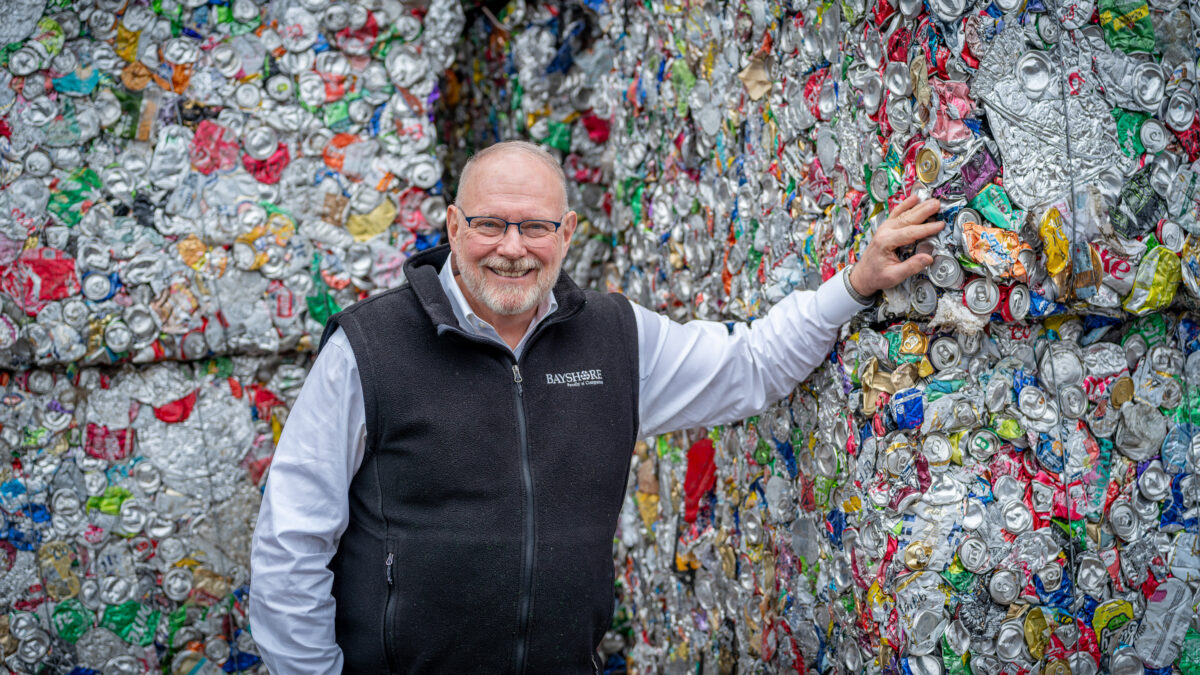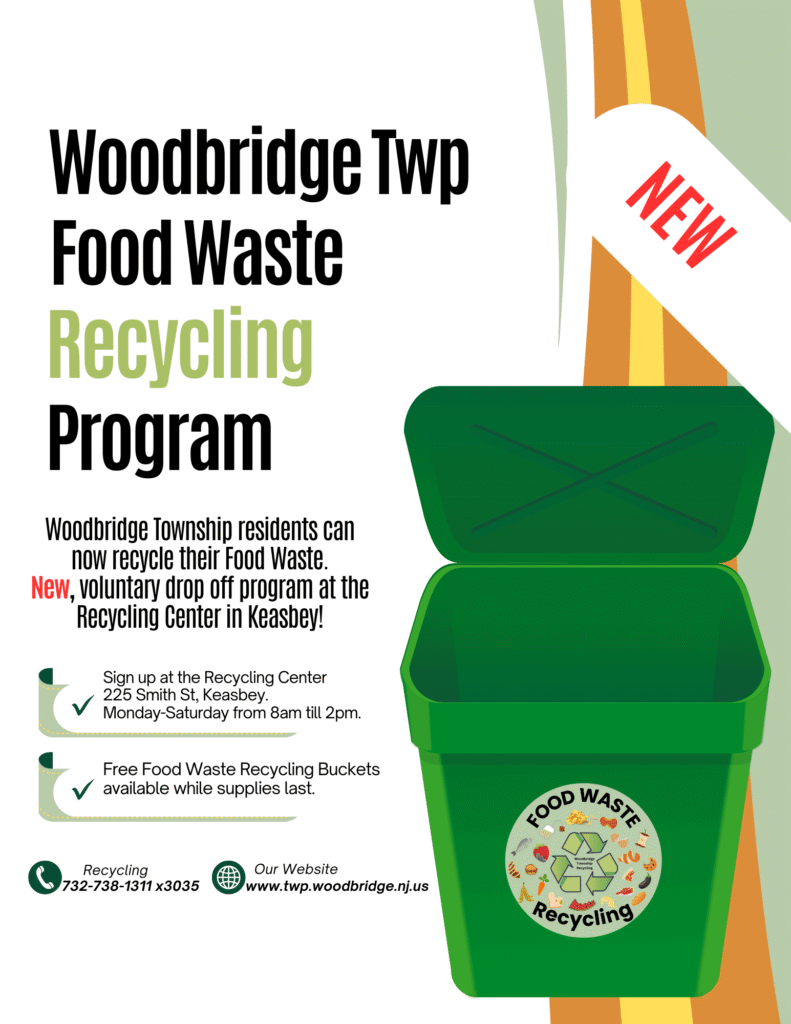

Bayshore VP of Operations, Gary Sondermeyer, Speaks with Caroline Ehrlich on Why Food Waste Recycling Is Crucial for a Sustainable Future- Scroll Down to Find the Full Video.
Bayshore Recycling is a notable player in the New Jersey recycling community, specializing in the recycling of Class A curbside materials (plastic, aluminum, steel, tin, glass bottles, laundry containers, newspaper, cardboard, and mixed paper) and Class B materials (concrete, brick, block, asphalt, contaminated soil, and other debris). Valerie and Frank Montecalvo, the owners of the Bayshore Family of Companies, are not only committed to providing the highest quality recycling services to the community, but are also inspired to drive civic engagement by having the company actively participate on third-party boards of directors/trustees and councils at the federal, state, county, and local levels. An extensive list of such organizations is available on our website here.
One particular area that Bayshore has helped advance is sustainable food management. In 2021, President and CEO Valerie Montecalvo and Vice President of Operations Gary Sondermeyer organized an “Organics Workgroup” as part of Bayshore’s participation on the New Jersey Climate Change Alliance. Working with sister organizations like the Association of New Jersey Recyclers (ANJR), Sustainable Jersey, the New Jersey Composting Council and the NJDEP, Valerie and Gary organized an 80-organization “lightning stakeholder process” and, following input, drafted a “Sustainable Organic Material Management Plan” for New Jersey which can be found here. Since publication of the plan, Bayshore has worked closely with the ANJR Legislative Committee to advance legislative, regulatory and public policy initiatives toward implementation of many of the plan’s recommendations. At its core, the plan seeks to advance both food recovery to help feed the 12% of our population who are struggling with food insecurity and food waste composting, to drive food waste away from landfilling where it decomposes into harmful methane gas emissions.
At the local level in our host community, Bayshore has been honored for many years to participate in the “Greenable Woodbridge” program and Woodbridge Township Sustainable Jersey Green Team. Over the past two years Bayshore has also served on the Township “Zero Waste Committee” to further advance sustainable living in New Jersey’s 6th most populated municipality. Recently Woodbridge took a massive step toward sustainability and zero waste with its new food waste drop-off and composting initiative. The Township accepts the drop-off of food waste at its Department of Public Works facility and across their large school system. Last month, Gary Sondermeyer was a guest of Woodbridge Chief of Staff Caroline Ehrlich, who directs broadcasts for the Greenable Woodbridge program on cable TV-35. Caroline interviewed Gary to discuss the importance of sustainable food waste management while announcing a new drop-off location at the Acacia Youth Center.
Food waste makes up 25% of everything we dispose of in New Jersey, according to Sondermeyer, which is a large percentage of the 22 million tons of waste the state produces per year. When food waste enters landfills, it produces methane gas and exacerbates climate change. The Greenable Woodbridge initiative would divert food waste to the Waste Management core facility in Elizabeth, where the waste would be blended into a pulp and brought to the Rahway Valley Sewage Authority wastewater treatment plant. There, the material is digested into sustainable renewable natural gas. Regarding zero waste, Sondermeyer stressed that by setting aspirational goals, such as the legislative goal to reduce food waste by 50% by 2030, and implementing food waste collection programs as launched in Woodbridge Township, we can make significant progress toward a more sustainable future.
This new initiative falls under the Greenable Woodbridge zero waste campaign and introduces food waste bins into the community to reduce the amount of food waste entering landfills. New Jersey was the first state to implement mandatory recycling laws approximately 38 years ago in 1987, yet the area where we still fall short is food recycling. As a lifelong advocate for green initiatives and programs supporting a circular economy, Sondermeyer emphasized that “food waste is probably the most important area for recycling at this point in time.”
Backyard food waste composting is another tremendous step toward driving a circular economy, although it may not be feasible for all members of the community. Caroline Ehrlich introduces this initiative as an accessible way for community members to participate in food recycling. “You can bring your food waste here (Acacia Youth Center), and it can be picked up and taken to the proper places, which is not the landfill,” said Ehrlich.
The Bayshore Family of Companies is proud to support Greenable Woodbridge’s food waste recycling initiative. To join the initiative, take a look at the interview and flyers below.

